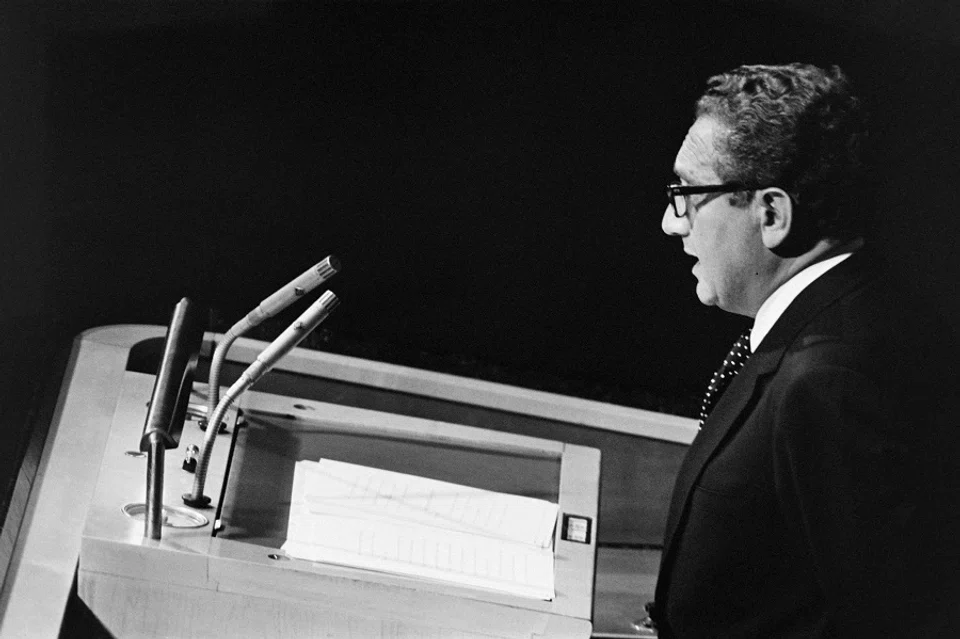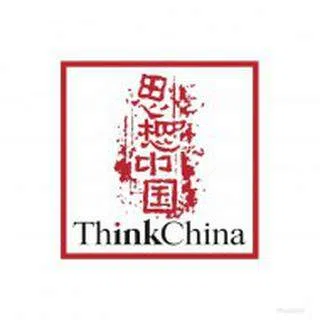Decline of Kissinger-style diplomacy and the future of China-US relations
US researcher Wei Da says that while the Chinese fondly remember the late US diplomat and former Secretary of State Henry Kissinger as a friend of China, he was described as "outdated" by the Americans even in the early 1990s. Why was that so and how did Kissinger see China in the later years of his life? Wei Da explains how the Reagan doctrine came to triumph over Kissinger-style diplomacy in the US and why such rhetoric continues till this day.

Henry Alfred Kissinger, the great US diplomat and former secretary of state, passed away on 29 November 2023. I remember that I welcomed a US foreign policy professor in Beijing in the early 1990s, when China-US relations were at an all-time low. The Chinese government sought Kissinger's help, hoping to mediate and reconcile the huge differences between the two nations. I told the US professor that Dr Kissinger had recently expressed some opinions but the professor dismissed it with a wave of his hand and said, "Kissinger is outdated."
"Kissinger is outdated"? This proclamation was rather shocking to China at the time. It is true that Kissinger had left public office after 1977 and that the peak of his diplomatic career (as national security adviser to the US president and as secretary of state) was mainly from 1970 to 1977.
During this period, he tirelessly orchestrated US diplomacy for the US's benefit and security as well as to seize control of the global situation during the Cold War. His achievements include the signing of a series of arms control and detente agreements with the Soviet Union, as well as breaking the ice between China and the US that led to President Nixon's first visit to China in 1972. To the diplomatic community in China, Kissinger was a highly regarded US diplomat and a "panda hugger" who was very familiar with China.
Managing the Cold War
Revisiting it today, the proclamation that "Kissinger is outdated" is probably inaccurate. A more objective and comprehensive evaluation should yield the conclusion that Kissinger-style diplomacy was an important part of the overall diplomatic philosophy and practice of the US after World War II.

The Washington Post has a better summary of this, which says that the main diplomatic style of President Nixon and Kissinger was to "manage the Cold War" while that of President Reagan and President Bush Sr was to "win" it. The biggest philosophical difference between the two is that the former pursues realpolitik (also known as Machiavellianism) while the latter emphasises differences in values and moral diplomacy, of which a typical example is the so-called human rights diplomacy.
Historical records show that when he was secretary of state, Kissinger publicly stated that the Khmer Rouge in Cambodia were murderous thugs, but the US would be friends with them and build relations. When dealing with the Soviet bloc during his presidency, Reagan had constantly condemned the Soviet Union as an evil empire and called on Soviet leader Gorbachev to "tear down this wall", referring to the Berlin Wall in his address at the Brandenburg Gate.
... the US ultimately gained victory without war during the Cold War due to the Reagan doctrine and not the Nixon doctrine or Kissinger-style diplomacy.
Kissinger-style pragmatism
The Kissinger-style diplomacy is based on Hegel's philosophy that 'what is real is rational', focusing on practical problems and pragmatism. It also focuses on maintaining, coordinating and moderating the international status quo, rather than emphasising on making major changes and defeating opponents. In his 1988 book, 1999 - Victory Without War, President Nixon wrote about this diplomatic concept of "engage, communicate and influence" instead of direct confrontations and conflicts.
However, the fact is that when Kissinger left public office in 1977, the Soviet bloc was still at its peak. Soon after, the Soviet Union brazenly invaded Afghanistan. At the time, the US was powerless to counter the Soviet Union and other forces, including Iran which restored a ruthless regime of governance by religious principles in 1979 and which boldly attacked the US embassy and seized hostages.

The then Carter administration, still somewhat influenced by Kissinger-style diplomacy, handled the crisis with hesitation and made compromises by mainly trying to solve the problem through negotiations with Iran. Eventually, the US effort to free the hostages by force failed, which significantly damaged the US's global standing and influence.
A focus on winning
After Reagan was elected in 1982, his administration changed the US style of diplomatic management in the past decade or so and began to seek advantage and victory. Reagan once publicly said, "My idea of American policy toward the Soviet Union is simple, and some would say simplistic. It is this: we win and they lose."
The Reagan and Bush Sr presidencies severely cracked down on Islamic autocracies as well as strongmen such as Gaddafi in Libya and Saddam Hussein in Iraq on the one hand, and more proactively and forcefully dealt with the Soviet bloc on the other, by externally supporting the internal changes within the Soviet bloc until the disintegration and collapse of the Soviet Union at the end of 1991. This also means that the US ultimately gained victory without war during the Cold War due to the Reagan doctrine and not the Nixon doctrine or Kissinger-style diplomacy.
Based on the above historical framework and process of the change in thinking, it is not difficult to discover the true nature of the thawing of China-US relations in early 1972.
Warmer China-US relations were beneficial, but it remained difficult for both sides to achieve more and larger agreements at higher levels. This is because China still adhered to the ideologies of the Cultural Revolution and stuck to ultra-left politics at that time, and the Kissinger-style pragmatic policy could only enable the US to take it one step at a time. It was only when China finally abandoned the madness of the Cultural Revolution at the end of 1978 and started its reforms and opening up that China-US relations was truly able to normalise and considerably develop.
... he was again lucky to be in the midst of a successful and prosperous 40-year period of China's reforms, during which China-US relations continued to develop and flourish.
Luck and the course of history
Some may wonder why Kissinger had become an "old friend of the Chinese people"? It was probably his luck that he opened the door to warmer China-US relations during his term in public office, thus becoming one of the pioneers of a new world order.
Later, although he had left public office, he was again lucky to be in the midst of a successful and prosperous 40-year period of China's reforms, during which China-US relations continued to develop and flourish. In such favourable circumstances, he had remained as the "old friend of the Chinese people".

In contrast, Patrick Hurley, the US ambassador to China in the mid-1940s, was less fortunate. He was remembered for trying to mediate between the Kuomintang and the Chinese Communist Party on behalf of the US government after World War II, so as to avoid a civil war in China.
When Mao Zedong, leader of the Chinese Communist Party, went to Chongqing in 1945 to negotiate with the Kuomintang, helmed by Chiang Kai-shek, the tall American who accompanied Mao and was captured on photographs was Ambassador Hurley. Had the peace talks between the Kuomintang and the Chinese Communist Party been successful in the peaceful formation of a coalition government in a new China, would Hurley have naturally become an "old friend of the Chinese people"? His achievements and contributions to China's development would have greatly surpassed those of Kissinger's.
No fundamental change in China-US relations in 50 years
In the development of China-US relations, the US policy from 1972 to 2018 of "engage and cooperate", lasting nearly half a century, began with the tone set by Nixon and Kissinger. Despite the many trials and tribulations, China-US relations did not fundamentally change.
After 2018, US politics and mainstream society have regarded its China policy a failure. Since then, the Reagan doctrine has become dominant in the US's China policy. Not only has this remained unchanged despite the Democrats and Republicans taking turns to run the country, it has increasingly intensified. This is also why Kissinger has lamented in recent years that "China-US relations will never return to what they were".
I think that Kissinger's lament is certainly due to his astute perceptiveness, that China is on the dangerous slippery slope of undoing its reforms and opening up to the world.
There may be different interpretations of Kissinger's helplessness and lament. Some say that China-US relations are undergoing great changes because China is now a powerful nation and the US is itself de-stabilised. This argument may be politically correct but it does not really tackle the China issue.
With regard to this, there are two major perspectives for reference. First, what does China being a powerful nation mean? A truly powerful modern civilisation should be one that embraces the strength of its people and individuals. Second, the US is capitalist, and capitalism's main feature is to create wealth. It is acceptable for one to engage in other doctrines, but one must create wealth instead of endlessly dawdling on make-believe ideologies and political movements.
I think that Kissinger's lament is certainly due to his astute perceptiveness, that China is on the dangerous slippery slope of undoing its reforms and opening up to the world. If this continues, it would lead to a dead end, which would not only be calamitous for China but also dim the prospects of China-US relations. The centenarian Kissinger did not see any light at the end of this long tunnel.
This article was first published in Lianhe Zaobao as "基辛格风格"与中美关系走向".





![[Photos] Fact versus fiction: The portrayal of WWII anti-Japanese martyrs in Taiwan](https://cassette.sphdigital.com.sg/image/thinkchina/3494f8bd481870f7c65b881fd21a3fd733f573f23232376e39c532a2c7593cbc)